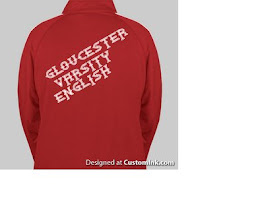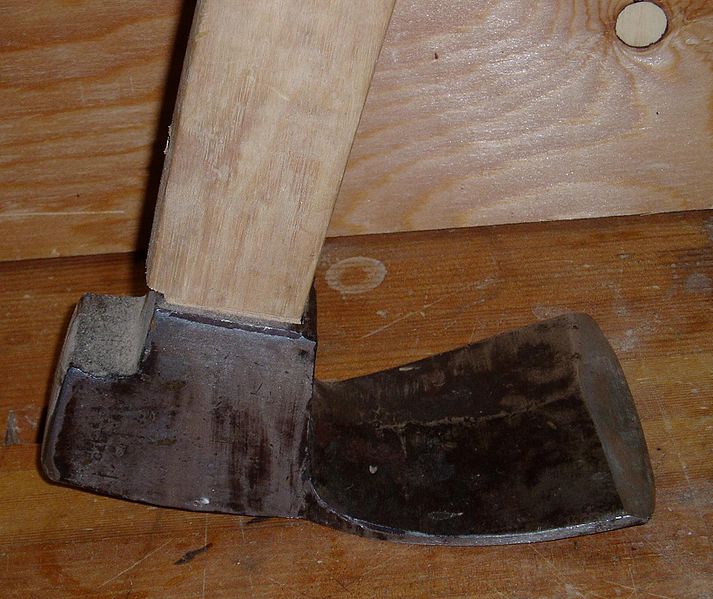Monday, September 22, 2008
Additional Comments on Jane Eyre (chapters 17-26)
In the comments box post any questions, observations, and comments still lingering after the student-lead discussions (Monday, September 22 through Wednesday, September 24). You are evaluated during these discussions and may feel that your contributions during class did not adequately convey your understanding of the novel. If so, post comments.
Subscribe to:
Post Comments (Atom)














7 comments:
When we talked about the gypsy scene, I wanted to mention how I felt it sort of stood for the control Rochester has over Jane. Although Jane speaks her mind, Rochester definitely has an influence over her at this point in the novel. I feel like the power he had as a gypsy, telling Jane about her own life, sort of parallels with the magic he has over her anyway in terms of their relationship.
Along with that, I also feel that although there is symbolism in the gypsy scene displaying the power Rochester possesses over Jane emotionally, I think that Jane's response to the gypsy before she knows it is Rochester is important. She almost tells the gypsy off in the sense that she doesn't suspect the gypsy has great insight into her life, but rather that the gypsy is merely making broad guesses about Jane that could be assumed for anyone in her position. I feel that the way Jane didn't act typically for the gypsy (they way the three previous girls did), shows that even though Rochester was trying to exercise his control over her, she was combatant and true to herself. I didn't realize it until after I read chapter 26, but I think Bronte was trying to use the gypsy scene to foreshadow that although Jane loves Rochester, his control over her will not succeed in keeping her content at Thornfield Hall.
Today in D Block, there was a lot talk about Jane's lack of maternal qualities. I felt like the conversation drifted from what Bronte was even trying to show in Jane's character. I don't think she was trying to say Jane has a cold heart, or is missing that "special" feeling when it comes to children. Jane's past plays a huge role in who she is at this point in the novel. According to what i recently learned in psychology, its social cognitivism. Her past experiences are the reason for her current preferences, which later shape her future environment. Although Bronte isn't a psychologist, if Jane is lacking maternal qualities, it's because of her missing out on it as a child. Living with the Reeds was a part of what shaped Jane into who she is and helped create a part of her identity.
Michael M
Today in class we talked about how Rochester is often viewed as "ugly" and Jane loves him based on his personality. I think that this fits into the religious nature of the book. Christianity tells us to love people based on their personality and how they act, not how they look. Religion holds a person's self in much higher regard than their looks. Seeing how Jane is a folower of "Helenism" it seems fitting that she would fall in love with a man for his personality rather than his looks.
I also noticed that the better looking people in the novel seem to be weaker in character than the people who are seen as "plain." Georgiana and Blanche are both viewed as beautiful people but both seem to have much less character than Jane. Georgiana is selfish and cruel to Jane as a child and Blanche only wants to marry Rochester for his money. Jane however is viewed as a plain girl but demonstrates strong character and maturity throughout the novel. I think fact about looks once agian shows the religious paralles in that a person should be judged on their character and not physical attributes.
Today (Thursday) in our class discussion, we touched upon how Rochester seems to want to change Jane once they are engaged. If the dice had selected me, my question would have been related to this idea. Although Rochester is apparently attracted to Jane, he seems to wish her to be something other than that. He wishes to give her "jewels...satin and lace" and " clasp bracelets" on her wrists. (261)This "clasping" is in opposition to Jane's true nature, as she puts it she is "a free human being with an independent will." (256)She says "I will be myself" and nothing "celestial."(262) Through this, Bronte develops Rochester as a character with a flawed sense of relationships. While he claims he isn't attracted to and "could never marry Miss Ingram," he seems to want to Transform Jane into a similar person with he frills of materials, or in Jane's mind a "performing ape." (257)
This is off topic from my first comment. I've noticed that throughout Jane Eyre, Rochester will call Jane, Janet. I don't know if this has any significance, but I feel like it might tie in with the theme of identity and naming, like in Invisible Man where he didn't have a name or the name choices of characters within WSS. Why would he sometimes call her Jane and other times, Janet?
(i know it's after friday but...i had some thoughts after reading the other posts)
meghan thats such a great point! i was actually wondering that myself. i was curious as to whether that's her true name and bronte never mentioned it and we were supposed to wonder, or if it was an exaggerated pet name rochester used to make her more of what he wants her to be...more showy perhaps, instead of being able to accept her for the plain jewel she is.
i also have a question, or rather, a discussion topic. i've talked to a few others who've had similar questions along the way but...i'm interested in hearing theories about the symbolism behind the chestnut tree/jane and rochester realtionship. they're sitting there, and then the night after he proposes, adele tells jane it was struck by lightning. then jane goes out and has all of these deep thoughts about the tree and it's life potential...strangely similar to the situation she finds herself in! i have my own thoughts but i'm curious enough to hear others...
I'm glad that others were interested by Rochester referring to Jane as Janet. I wanted to bring it up in class, but I could not find an appropriate time to interject. What intrigues me most is how such a minute detail can hold such eminence. By calling Jane by a name that is not her own, Rochester is implying that he wants to change Jane, and that he is discontented with her. Rochester substantiates this assertion when, after proposing to Jane, he says that he wants to give her jewels and satin and lace and other superfluous things that hold no importance in Jane's life. Jane responds by saying that she will be herself and nothing else, meaning that she will not succumb to the frivolous lifestyle that Rochester wants her to lead.
I also drew a parallel between this detail and a similar detail in Jean Rhys's Wide Sargasso Sea. Just as Bronte's Rochester sometimes refers to Jane as Janet, Rhys's Rochester often referred to Antoinette as Bertha. It is unbelievable to me that Rhys paid such careful attention to the detail of Jane Eyre that she was able to incorporate such things into her own work.
Post a Comment